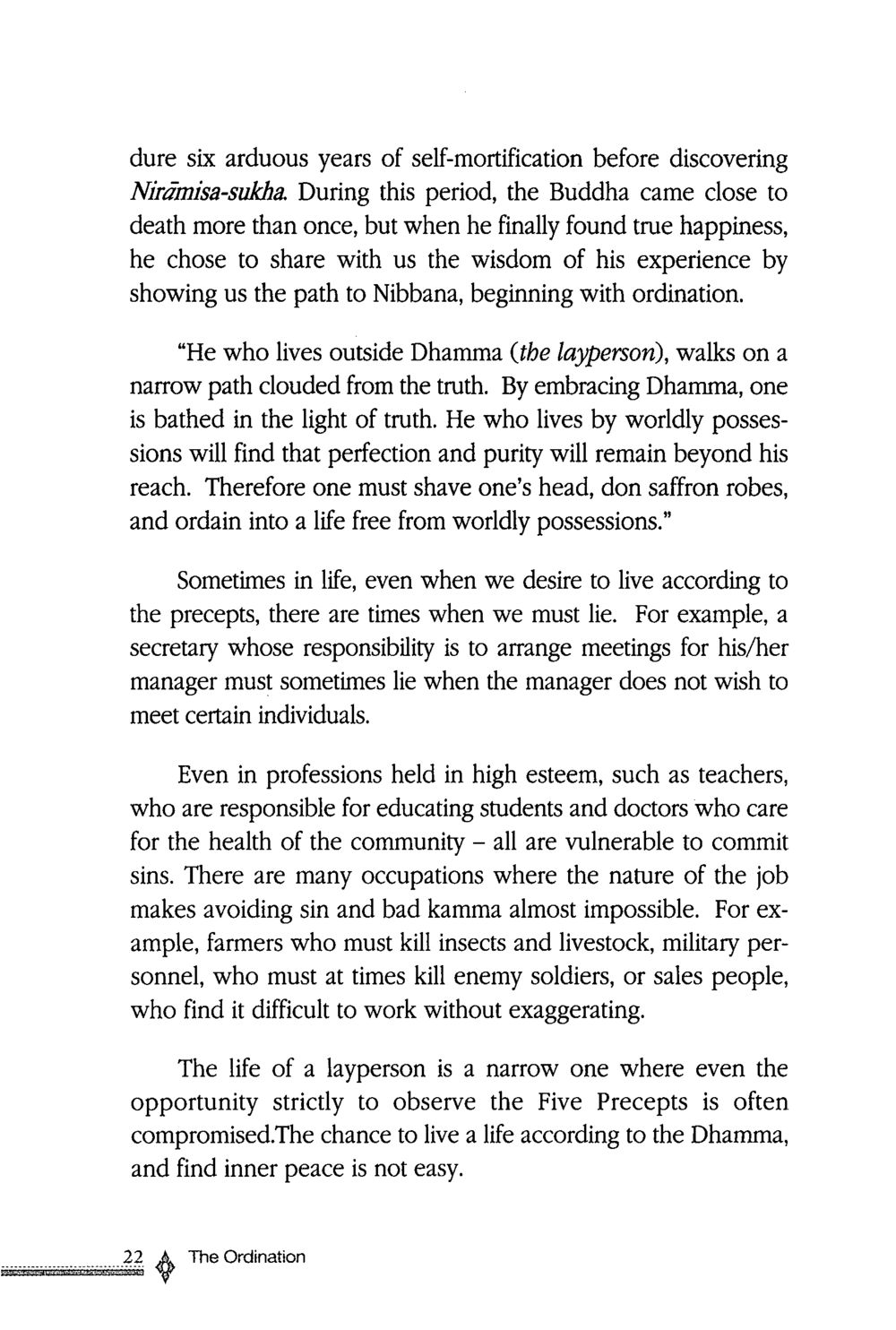The Path to Nibbana and the Challenges of Lay Life : หน้า 23/105
The ordination : หน้า 23/105 Explore the Buddha's journey to enlightenment and the struggles faced by laypeople in following the Dhamma.
0 ครั้ง

สรุปเนื้อหา
After six years of self-mortification, the Buddha discovered Niramisasukha, close to death multiple times. He emphasized living by the Dhamma for true happiness, urging ordination to escape worldly possessions. However, even devoted individuals face challenges where they may compromise their values, such as in necessary lies at work. Occupations like teaching, healthcare, and farming expose individuals to moral dilemmas that complicate adherence to the Five Precepts. Thus, lay life often offers limited opportunities to live righteously and achieve inner peace. For more, visit dmc.tv.
หัวข้อประเด็น
-Buddha's Journey to Enlightenment
-The Concept of Nibbana
-Importance of Dhamma in Daily Life
-Challenges Faced by Laypeople
-Moral Dilemmas in Various Professions









































































































